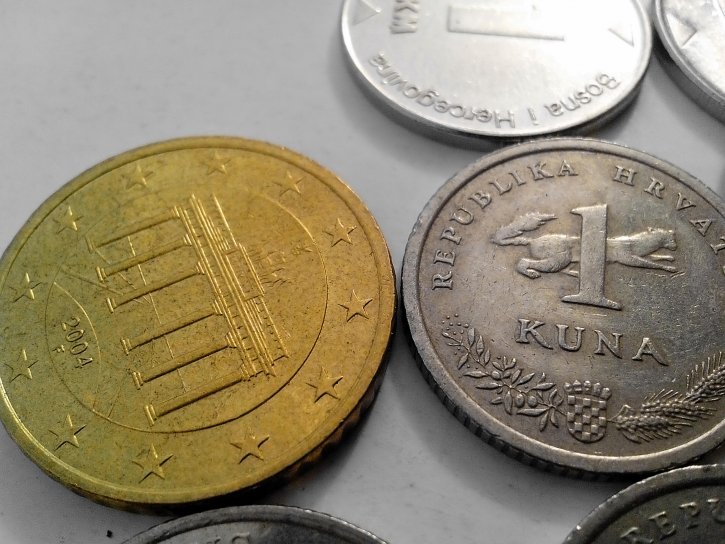The United States has always been known for policing global restrictions regarding the banking industry. Now, it seems that the European Union (EU) will don a similar mantle, this time acting as the vanguard of data protection for users around the world.
This sentiment is because of the EU’s new legislation called the General Data Protection Regulation (GDPR), which became online on May 25. The regulation is estimated to create 75,000 privacy-centered jobs and the spending of $7.8 billion in order for companies to accurately know if they’re in compliance, according to the International Association Privacy Professionals (IAPP).
There are two major things that the GDPR wants to accomplish. The first is to design a collective data legislation that will encompass the whole of Europe. And the second is to solidify the rights of individuals regarding their personal information in the digital space. This includes, but is not limited to, control of the said information and the ability to request deletion of data, which the GDPR calls the “right of erasure.”
Moreover, it has become the habit of public and private sectors to collect data even if it isn’t necessarily needed by their operation. The GDPR breaks this habit by mandating organizations not to compile data if it isn’t directly relevant to the business they do with their consumers. Article 39 of the GDPR states that companies should collect information only if it’s “adequate, relevant and limited to the minimum necessary in relation to the purposes for which they are processed.”
So how is this law going to affect the shaping of blockchain regulation? This question is important because one of the blockchain’s main purposes is the storing of personal information in a decentralized network. But because of this decentralized nature of the technology, who will be culpable if there’s a data breach in such a framework design?
This isn’t the only contradiction that the GDPR and blockchain tech have. Another conflict is the immutable nature of blockchain and how the application of the “right of erasure” will be enforced.
Because of these contradictions, it isn’t clear whether or not the GDPR will hinder the blossoming of blockchain or cultivate it. There are those who are leaning towards the latter since the GDPR and blockchain do share a common goal as the legislation aims to strengthen the rights of individuals in the digital realm and give them more control over their information.



 Baidu Approves $5 Billion Share Buyback and Plans First-Ever Dividend in 2026
Baidu Approves $5 Billion Share Buyback and Plans First-Ever Dividend in 2026  Anthropic Eyes $350 Billion Valuation as AI Funding and Share Sale Accelerate
Anthropic Eyes $350 Billion Valuation as AI Funding and Share Sale Accelerate  Global PC Makers Eye Chinese Memory Chip Suppliers Amid Ongoing Supply Crunch
Global PC Makers Eye Chinese Memory Chip Suppliers Amid Ongoing Supply Crunch  Nvidia Confirms Major OpenAI Investment Amid AI Funding Race
Nvidia Confirms Major OpenAI Investment Amid AI Funding Race  SoftBank and Intel Partner to Develop Next-Generation Memory Chips for AI Data Centers
SoftBank and Intel Partner to Develop Next-Generation Memory Chips for AI Data Centers  Sam Altman Reaffirms OpenAI’s Long-Term Commitment to NVIDIA Amid Chip Report
Sam Altman Reaffirms OpenAI’s Long-Term Commitment to NVIDIA Amid Chip Report  SpaceX Pushes for Early Stock Index Inclusion Ahead of Potential Record-Breaking IPO
SpaceX Pushes for Early Stock Index Inclusion Ahead of Potential Record-Breaking IPO  Nvidia, ByteDance, and the U.S.-China AI Chip Standoff Over H200 Exports
Nvidia, ByteDance, and the U.S.-China AI Chip Standoff Over H200 Exports  Oracle Plans $45–$50 Billion Funding Push in 2026 to Expand Cloud and AI Infrastructure
Oracle Plans $45–$50 Billion Funding Push in 2026 to Expand Cloud and AI Infrastructure  Nvidia Nears $20 Billion OpenAI Investment as AI Funding Race Intensifies
Nvidia Nears $20 Billion OpenAI Investment as AI Funding Race Intensifies  SpaceX Prioritizes Moon Mission Before Mars as Starship Development Accelerates
SpaceX Prioritizes Moon Mission Before Mars as Starship Development Accelerates  Palantir Stock Jumps After Strong Q4 Earnings Beat and Upbeat 2026 Revenue Forecast
Palantir Stock Jumps After Strong Q4 Earnings Beat and Upbeat 2026 Revenue Forecast  SoftBank Shares Slide After Arm Earnings Miss Fuels Tech Stock Sell-Off
SoftBank Shares Slide After Arm Earnings Miss Fuels Tech Stock Sell-Off  Alphabet’s Massive AI Spending Surge Signals Confidence in Google’s Growth Engine
Alphabet’s Massive AI Spending Surge Signals Confidence in Google’s Growth Engine  Elon Musk’s SpaceX Acquires xAI in Historic Deal Uniting Space and Artificial Intelligence
Elon Musk’s SpaceX Acquires xAI in Historic Deal Uniting Space and Artificial Intelligence  TSMC Eyes 3nm Chip Production in Japan with $17 Billion Kumamoto Investment
TSMC Eyes 3nm Chip Production in Japan with $17 Billion Kumamoto Investment 































